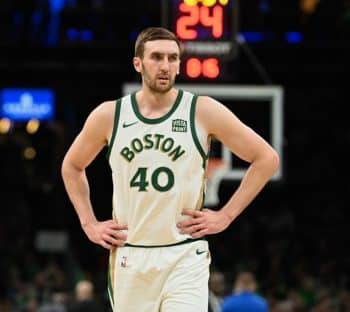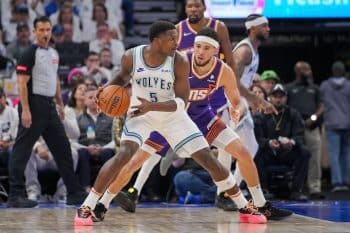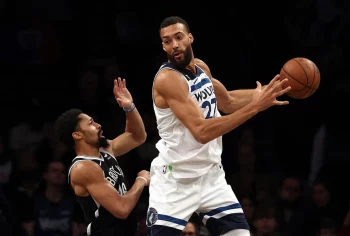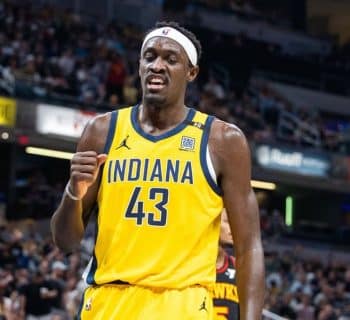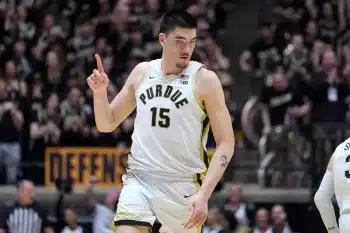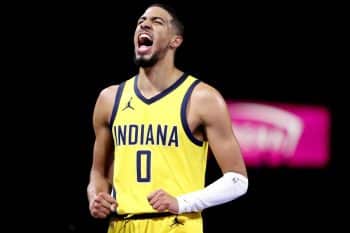NBA
NBA Daily: Did Portland Make The Right Call On CJ McCollum?

The Portland Trail Blazers have, somehow, managed to fly under the radar.
Amidst the chaos that was free agency, general manager Neil Olshey and the Blazers turned over much of a roster that just made the Western Conference Finals – Portland’s first in nearly 20 years.
Olshey acquired Kent Bazemore from the Atlanta Hawks and swapped Maurice Harkless and Meyers Leonard for the Miami HEAT’s Hassan Whiteside. He brought in some veteran depth and retained one of the team’s own free agents: Pau Gasol, Mario Hezonja, Anthony Tolliver and Rodney Hood, to be specific. And, as expected, the Blazers also extended superstar Damian Lillard to the tune of a four-year supermax extension set to begin in 2021.
Now, they have retained the services of his backcourt mate, CJ McCollum, for the foreseeable future as well.
McCollum has been a stud for the Blazers since he first earned heavy minutes back in 2015, when he was dubbed the NBA’s Most Improved Player. In that four-season span, McCollum has averaged 21.6 points, 3.7 rebounds and 3.6 assists on 45.7% from the field and 40.3% from three. During that time, Lillard and McCollum have also established themselves as one of the best backcourt duos in the NBA, as the two have carried the Blazers to greater and greater heights.
But was it the right decision for Portland and Olshey to extend him?
No one is here to argue whether or not McCollum is worth the extension. The Lehigh University product has, on multiple occasions, proven his merit and shown that he is an integral part of the Blazers recent run of success. McCollum has earned every cent of his new deal – he has played like an All-Star and, now McCollum is getting paid like it – and to argue against that would be foolish.
But, to say the move isn’t a gamble on Blazers’ part would also be foolish. In the era of super teams, Portland chose to invest a significant amount of capital into a duo that doesn’t guarantee them a Finals appearance, let alone a title; could their gamble backfire?
The obvious answer is that of course it could, because any gamble could in this league. There has always been (and will always be) a randomness in the NBA (and sports in general) that has disallowed certainty; just look at last season’s Boston Celtics and Golden State Warriors to see it in action.
And that is the main fault in the McCollum extension: the (un)certainty is exactly what the Blazers are banking on.
McCollum, 27, has just now entered his prime as a player and, to this point, he has maintained or improved his play every season. If he is unable to take another step (more like a leap) as a player, the extension may never provide an adequate return-on-investment for the Blazers.
In fact, the inability of McCollum to improve could strand them in NBA purgatory – a place where they aren’t good enough to reach the ultimate goal of a championship, but are too good to gain any sort of draft capital that could help them reach that goal.
Furthermore, the extension may have hamstrung Olshey in any future endeavors to help the team via trade or free agency. Portland isn’t Los Angeles or New York, meaning the Blazers’ pockets aren’t quite as deep. Because they have so much money invested in just two of the 15 needed to fill the roster, Olshey and the Blazers’ financial maneuvering must be perfect in order to keep a championship-quality product (or, at the very least, pseudo-championship-quality) on the floor for the foreseeable future.
There could also be a fear that, despite the major roster turnover, that the previous iteration of the Blazers may be their ceiling.
Olshey didn’t go out and shake up Portland’s roster just for fun, that’s for sure. The Blazers were swept by a Warriors squad that was light on depth and playing without Kevin Durant. Olshey saw that an upgrade was necessary and proceeded accordingly. But with Lillard and McCollum still at the heart of everything they do, can Portland improve enough as a team to boost their future outlook to that of a true title contender?
Of course, it isn’t all bad; while he and Lillard have said otherwise, not every team can operate with a championship or bust mentality. The Blazers have shown that they have the ability to hang with some of the best teams in the NBA. Instead of extending him, would it have made sense for the Blazers to trade McCollum and throw everything away for a chance to start over and maybe go further than they had before?
Not really, no.
Even if McCollum is unable to further improve upon his game, his current output is nothing to scoff at. In these last four seasons, he has proved himself Mr. Consistent in a game that, really, is enveloped in random chance and inconsistencies. In the face of that, McCollum could provide a semblance of stability, a reassurance to his teammates, the fans and the organization that he and the team should continue to operate at a high-level near the top of the Western Conference for much of the life of his extension.
And, sometimes, it can just be easier to pay for what you know you have, run with it and figure out the rest later.
Olshey and the Blazers know that. Between McCollum and Lillard, they know that they have two of the NBA’s best at or near the peak of their powers. McCollum is a foundational piece, an integral part of the Blazers core and, while he may not catapult them to a title on his own, McCollum should keep Portland in the mix as they look for that piece to (finally) get them over that hump.
And, for the Blazers, that may just be enough for now.
